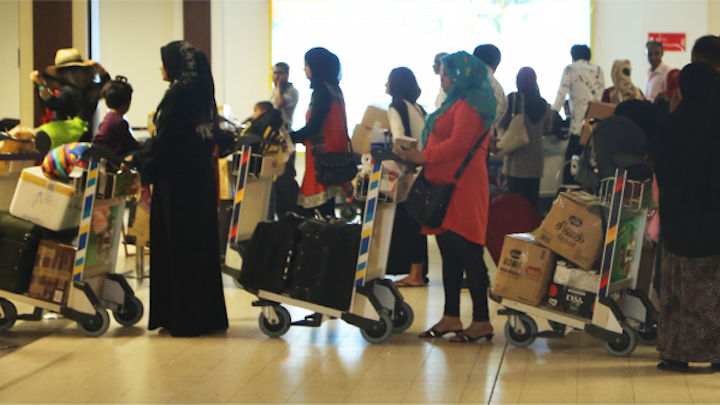National bank to set up airport kiosk for dollar sales
From January 8 onward, travellers can buy up to US$500 dollars per ticket through an online portal or at any BML branch. But the dollars must be collected from a dedicated area at the Velana International Airport after checking in at the departure terminal.

05 Jan 2017, 9:00 AM
The Bank of Maldives has introduced a new system to sell US dollars to Maldivians travelling overseas after the central bank temporarily took over dollar sales amid a shortage that led to soaring rates on the black market.
From January 8 onward, travellers can buy up to US$500 dollars per ticket through an online portal or at any BML branch. But the dollars must be collected from a dedicated area at the Velana International Airport after checking in at the departure terminal.
“The new system will ensure that only genuine travellers can obtain dollars, which will of course lead to a larger supply of dollars being made available for people travelling overseas for medical or work purposes, or even on holiday,” said BML CEO and Managing Director Andrew Healy.
In August, the Maldives Monetary Authority had instructed banks to sell dollars only to ticket-holders after reports that the special dispensation was being misused for sale in the black market.
Become a member
Get full access to our archive and personalise your experience.
Already a member?
Discussion
No comments yet. Be the first to share your thoughts!
No comments yet. Be the first to join the conversation!
Join the Conversation
Sign in to share your thoughts under an alias and take part in the discussion. Independent journalism thrives on open, respectful debate — your voice matters.




